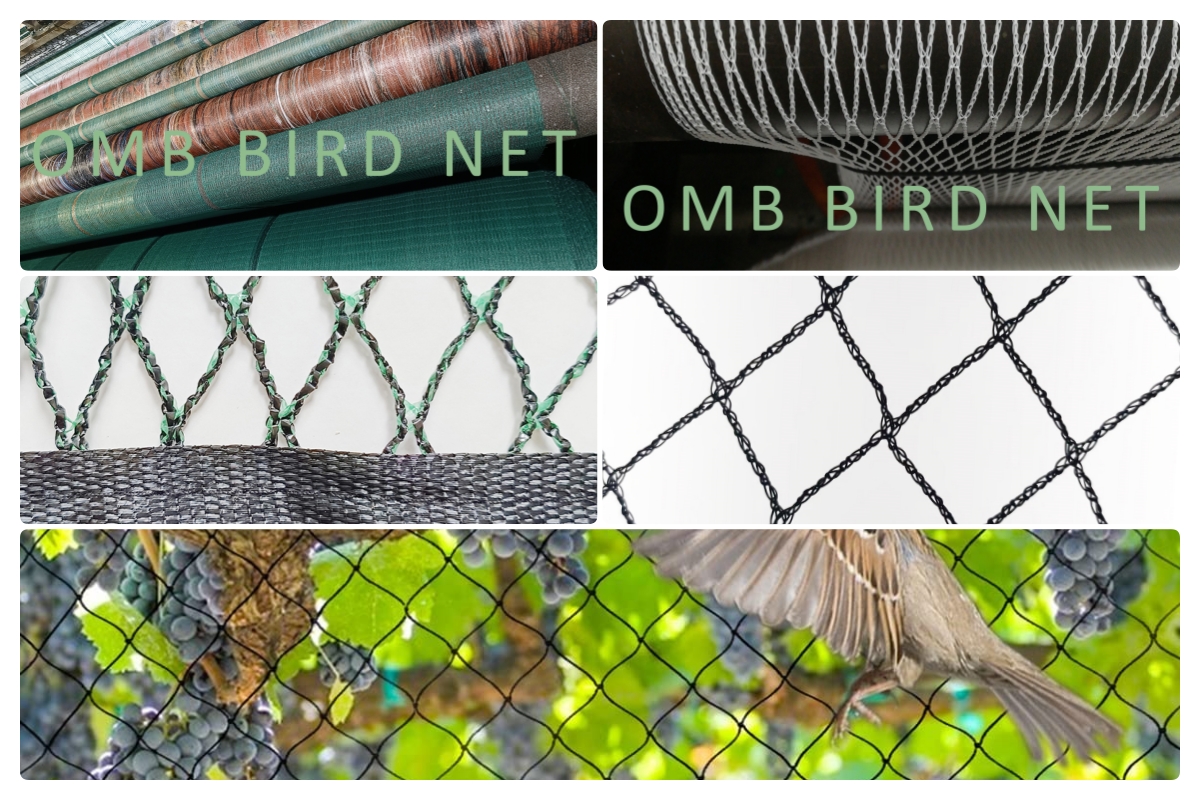
Birds play a vital role in maintaining the fragile balance of our ecosystems. However, in certain scenarios, their presence can pose challenges, especially when it comes to agriculture and the protection of our cherished crops. That is why incorporating effective measures such as anti-bird netting is crucial. In this blog, we will explore the significance and benefits of anti-bird netting, examining how it can help us strike a balance between safeguarding our natural habitats and ensuring the growth of our agricultural endeavors.
1. Defining the Problem:
Birds, while being beautiful creatures, can inflict extensive damage to crops, leading to significant financial losses for farmers and impeding food production. From pecking at fruits to damaging the stalks of cereal crops, the impact of bird damage is far-reaching. This issue calls for a solution that is both efficient and environmentally friendly—a solution that simultaneously protects our crops and the bird populations that are essential for a thriving ecosystem.
2. The Purpose and Features of Anti-Bird Netting:
Anti-bird netting has emerged as one of the most effective ways of preventing bird-related crop damage. This approach involves the strategic placement of specially designed nets over agricultural areas to create a physical barrier. These nets are made from durable and lightweight materials that are resistant to tearing, ensuring their longevity. The fine mesh design acts as a formidable barrier for birds, preventing them from reaching the crops and causing harm.
3. Safeguarding the Ecosystem:
Despite the focus on crop protection, anti-bird netting is designed to ensure the long-term survival of bird populations. By using smart netting techniques, birds can be discouraged from targeting crops without any harm being inflicted upon them. The netting allows birds to adapt to new feeding patterns, which reduces the overall dependence on crops as their food source, thus promoting biodiversity and the preservation of our natural habitats.
4. Ecological and Economic Benefits:
Implementing anti-bird netting offers a host of ecological and economic benefits. Ecologically, it conserves natural resources by reducing the need for chemical pesticides and deterrents. Netting also prevents birds from spreading invasive plants through their droppings, further protecting the natural ecosystem. Economically, anti-bird netting increases crop yields and minimizes financial loss for farmers. The investment made in installing netting systems is far more economical in comparison to the potential damage birds can wreak on an unprotected crop.
5. Sustainable Agriculture:
Anti-bird netting plays a crucial role in advancing sustainable agricultural practices. By minimizing bird-related crop damage, farmers experience consistent yields, which contributes to food security and stability. Additionally, as the reliance on chemical pesticides diminishes due to the effectiveness of netting, the negative impact on soil health and water quality is significantly reduced. This integration of netting as a proactive measure aligns with the principles of sustainable agriculture to ensure we can meet the demands of a growing global population while preserving our natural resources.
6. Psychological Benefits for Farmers:
Besides the ecological and economic advantages, anti-bird netting provides psychological benefits for farmers. Crop damage caused by birds can be demoralizing, leading to stress and dissatisfaction in farming communities. By securing their investments with reliable netting systems, farmers can experience peace of mind, knowing that their efforts are protected and that they have made a difference in striking a balance between nature and their livelihoods.
As we strive to coexist with nature harmoniously, it is imperative to employ strategies that address potential conflicts between wildlife and agriculture. Anti-bird netting emerges as a win-win solution, protecting both our valuable crops and the avian species that contribute to the delicate balance of our ecosystems. By incorporating this thoughtful approach, we can support sustainable agriculture, enhance biodiversity, and secure our future food supplies. Let us embrace anti-bird netting as a pivotal tool to safeguard our natural habitats, ensuring a prosperous coexistence between humans and birds for generations to come.


 英语
英语 西班牙语
西班牙语













